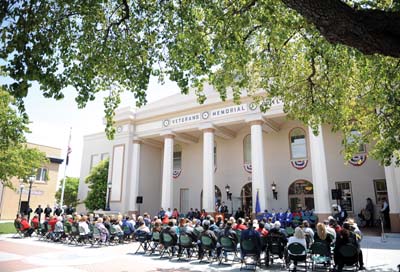I drew the bad extra duty only once during my career; it was a case in the early 1970s as the Vietnam War started to wind down. I will not describe the place or the date any closer than that so the soldier and his family can remain anonymous.
I remember the official title as survivor assistance officer (SAO). The duties were to ensure that the service was meeting the survivors’ immediate needs, provide assistance in making funeral or memorial arrangements, and aid in the preparation and submission of claims to various government agencies for benefits.
When the SAO orders came, my first thoughts were about myself; I did not want any part of this assignment, even one case. It was small consolation that I was not the notification officer – the first one in with the shocking announcement that your loved one was gone forever. In those days the notification officer delivered the bad news then the notification officer was gone and the SAO took over. I always thought that a psychologist designed those rules to remove the link to the worst memory as quickly as possible.
That assignment taught me a lot about human nature. Here I was heading out to help a family bury their young-adult son and my first thoughts were about myself. People are naturally self-centered and I was no different. I put that aside and traveled to the family’s residence where they were expecting me. I tried to answer their questions, but I had very little information, only that their son had died in South Vietnam from injury or illness – not from enemy action.
I made contact with the sergeant escorting the body and he filled me in; the soldier had committed suicide. Talking to a member of his unit who knew him and his parents, the picture became clearer. The soldier had lost a loved one in an automobile accident back in the states months earlier and he never really got over it. Obviously, the stress of being away from home in a war-torn nation did not help. Eventually, his depression got the better of him and he took his own life.
He was buried at a sparsely attended ceremony with the help of a local veterans group who supplied the honor guard. Had he lived he would be in his sixties. I do not dwell on this memory; it goes away and only comes back near Memorial Day. I did not know this soldier at all, but for some reason he represents all those we honor to me.
The members of America’s armed forces and security agencies entrust us with their most valuable possession – their lives. They understand that ‘soldering’ is a dangerous physical and mental undertaking in many ways, not just in combat. They trust that we will value their lives and care for them and their families, and – if the worst happens – sell their lives dearly. The nation has not always lived up its end of that bargain.
All gave some and some gave all.
Marty Richman, Chief Warrant Officer 4, U.S. Army (Retired), is a Free Lance columnist.










